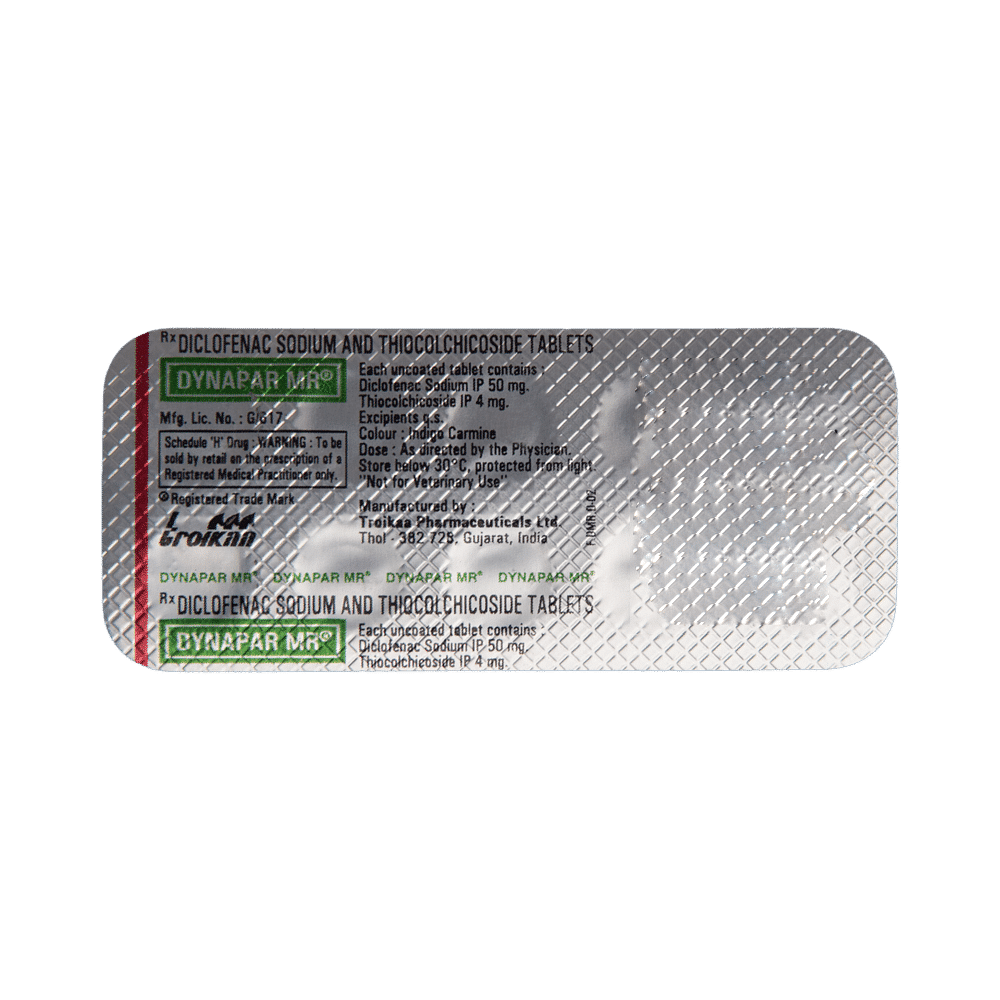
Coleth-T 4mg/50mg Tablet
Manufacturer
Aden Healthcare
Salt Composition
Thiocolchicoside (4mg) + Diclofenac (50mg)
Key Information
Short Description
Coleth-T 4mg/50mg Tablet is a combination medicine used in the treatment of pain due to muscle spasm. It improves muscle movement and provides relief from pain and discomfort associated with muscle spasms.
Dosage Form
Tablet
Introduction
Coleth-T 4mg/50mg Tablet should be taken with food to prevent an upset stomach. It should be taken regularly as advised by your doctor and not for longer than recommended. Common side effects include nausea, vomiting, diarrhea, heartburn, stomach pain, and loss of appetite. Inform your doctor if these side effects persist. This medicine may not be suitable for everyone, especially those with heart, kidney, or liver problems. Pregnant and breastfeeding mothers should consult their doctors before using this medicine.
Directions for Use
Take this medicine in the dose and duration as advised by your doctor. Swallow it whole without chewing, crushing, or breaking it. Coleth-T 4mg/50mg Tablet is to be taken with food.
How it works
Coleth-T 4mg/50mg Tablet is a combination of Thiocolchicoside and Diclofenac. Thiocolchicoside is a muscle relaxant that works on the brain and spinal cord to relieve muscle stiffness or spasm and improve muscle movement. Diclofenac is a non-steroidal anti-inflammatory drug (NSAID) that blocks the release of certain chemical messengers in the brain that cause pain and inflammation.
Quick Tips
Helps relieve pain and muscle spasm due to strains, sprains, and muscle injuries. Usually used along with rest and physical therapy. Take it with food to avoid an upset stomach. May cause dizziness. Do not drive or do anything requiring concentration until you know how it affects you. Avoid consuming alcohol as it may cause excessive drowsiness.
Related Medicines

Dynapar MR Tablet

Cemylo Plus 4mg/50mg Tablet

Thiobit D 4mg/50mg Tablet

Loftidase TH 4mg/50mg Tablet

Thicnex D 4mg/50mg Tablet

Diklon TH 4mg/50mg Tablet

Thiossil D 4mg/50mg Tablet

Spithol D 4mg/50mg Tablet

Fennod-T 4mg/50mg Tablet

Colchi D 4mg/50mg Tablet
Frequently asked questions
Are there any specific contraindications associated with the use of Coleth-T 4mg/50mg Tablet?
The use of Coleth-T 4mg/50mg Tablet is contraindicated in patients with known allergy to any component or excipient. It should be avoided in individuals with a history of active or recurrent gastric ulcers and bleeding, as well as those with a history of heart failure, high blood pressure, or liver or kidney disease.
Can I stop taking Coleth-T 4mg/50mg Tablet when my pain is relieved?
Coleth-T 4mg/50mg Tablet is typically used for short-term relief and should be discontinued once the pain has been alleviated. However, continued use under physician guidance may be necessary based on individual circumstances.
What are the instructions for the storage and disposal of Coleth-T 4mg/50mg Tablet?
Store this medicine in its original packaging, tightly sealed. Follow the instructions provided on the label or packaging. Do not dispose of unused medication down the drain or in household waste. Ensure that it is inaccessible to pets, children, and other individuals.
Can the use of Coleth-T 4mg/50mg Tablet cause dizziness?
Yes, some patients may experience dizziness (feeling faint, weak, unsteady or lightheaded) when taking Coleth-T 4mg/50mg Tablet. If this occurs, resting for a short period and resuming activity when feeling better is recommended.
Can the use of Coleth-T 4mg/50mg Tablet cause damage to kidneys?
Long-term use of Coleth-T 4mg/50mg Tablet can potentially lead to kidney damage. Prostaglandins, a chemical produced by normal kidneys, protect them from damage. Painkillers suppress prostaglandin levels in the body over long periods, increasing the risk of kidney damage. It's important for those with pre-existing kidney disease to avoid using this medication.
Will a higher than the recommended dose of Coleth-T 4mg/50mg Tablet be more effective?
Taking a higher dose than prescribed may not enhance effectiveness and can increase the risk of side effects. If symptoms worsen despite the prescribed dosage, consult your healthcare provider for further evaluation.


